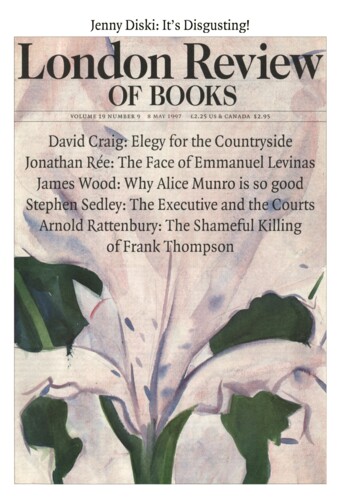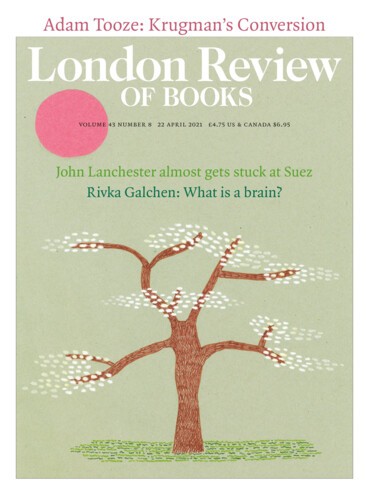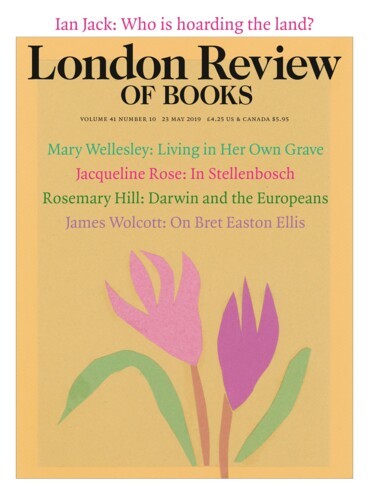Get it out of your system
Jenny Diski, 8 May 1997
It’s life, death and the whole cyclical thing we can’t stand. We are appalled by life’s fertility, and anything that reminds us of it, especially anything that provokes thoughts of excess, will be found vile. What is most disturbing about lower forms of life is their teeming, swarming, seething, rotting, regenerating nature. So we are disgusted by the nature in human nature.







